AMD Ryzen 9 9950X3D Review
The AMD Ryzen 9 9950X3D, arriving just months after its Ryzen 7 9800X3D sibling, brings 3D V-Cache technology to a 16-core, 32-thread powerhouse. While undeniably overkill for most gamers, it effortlessly handles even the most demanding graphics cards like the Nvidia RTX 5090 and beyond. However, its $699 price tag and 170W power consumption make it a tough sell unless you're building an exceptionally high-end (and expensive) gaming rig. For most, the Ryzen 7 9800X3D remains the more practical choice.
Purchasing Guide
The AMD Ryzen 9 9950X3D launches March 12th, with a starting price of $699. This is a suggested retail price; actual pricing may vary depending on market demand.
AMD Ryzen 9 9950X3D – Photos
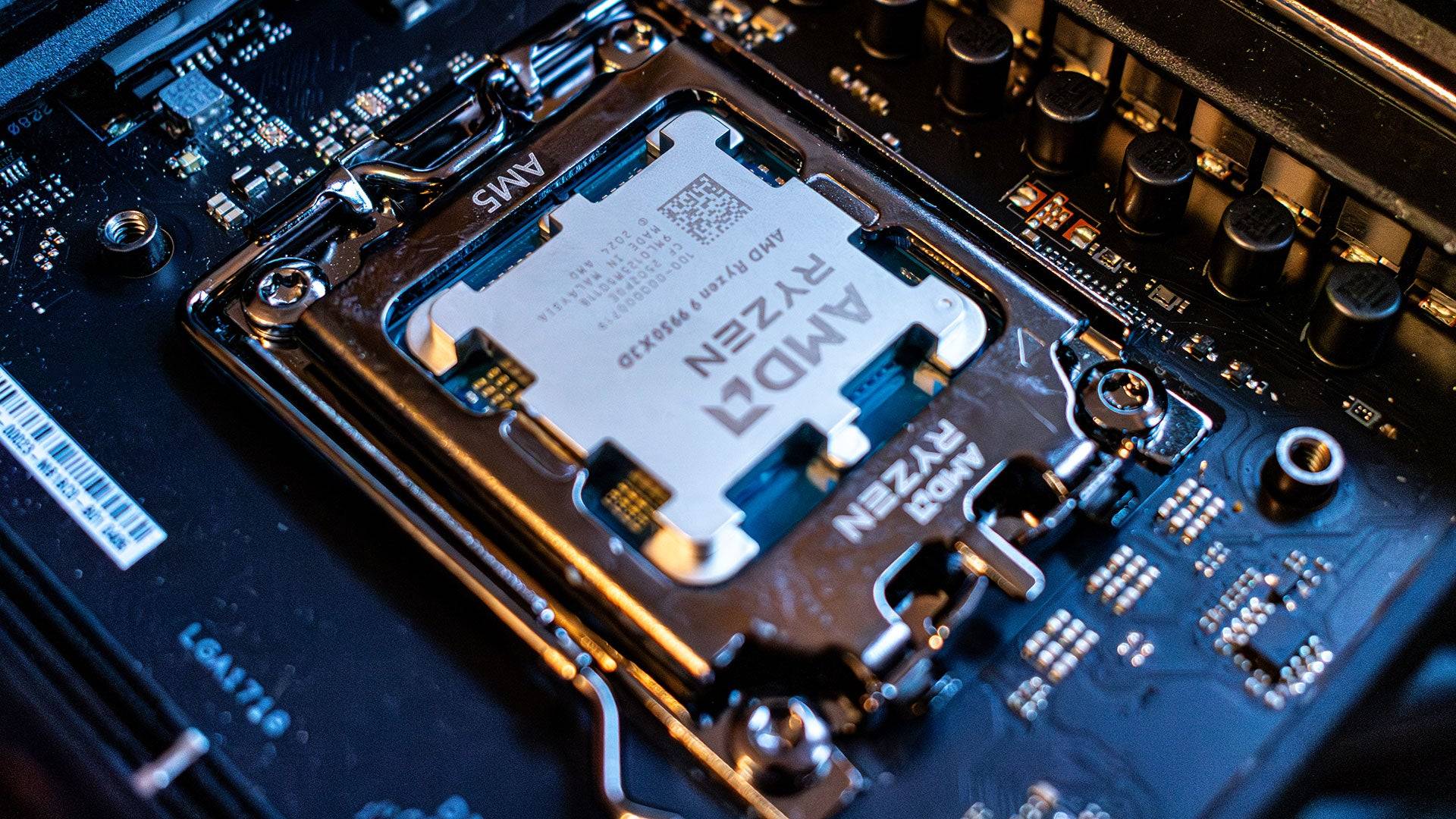
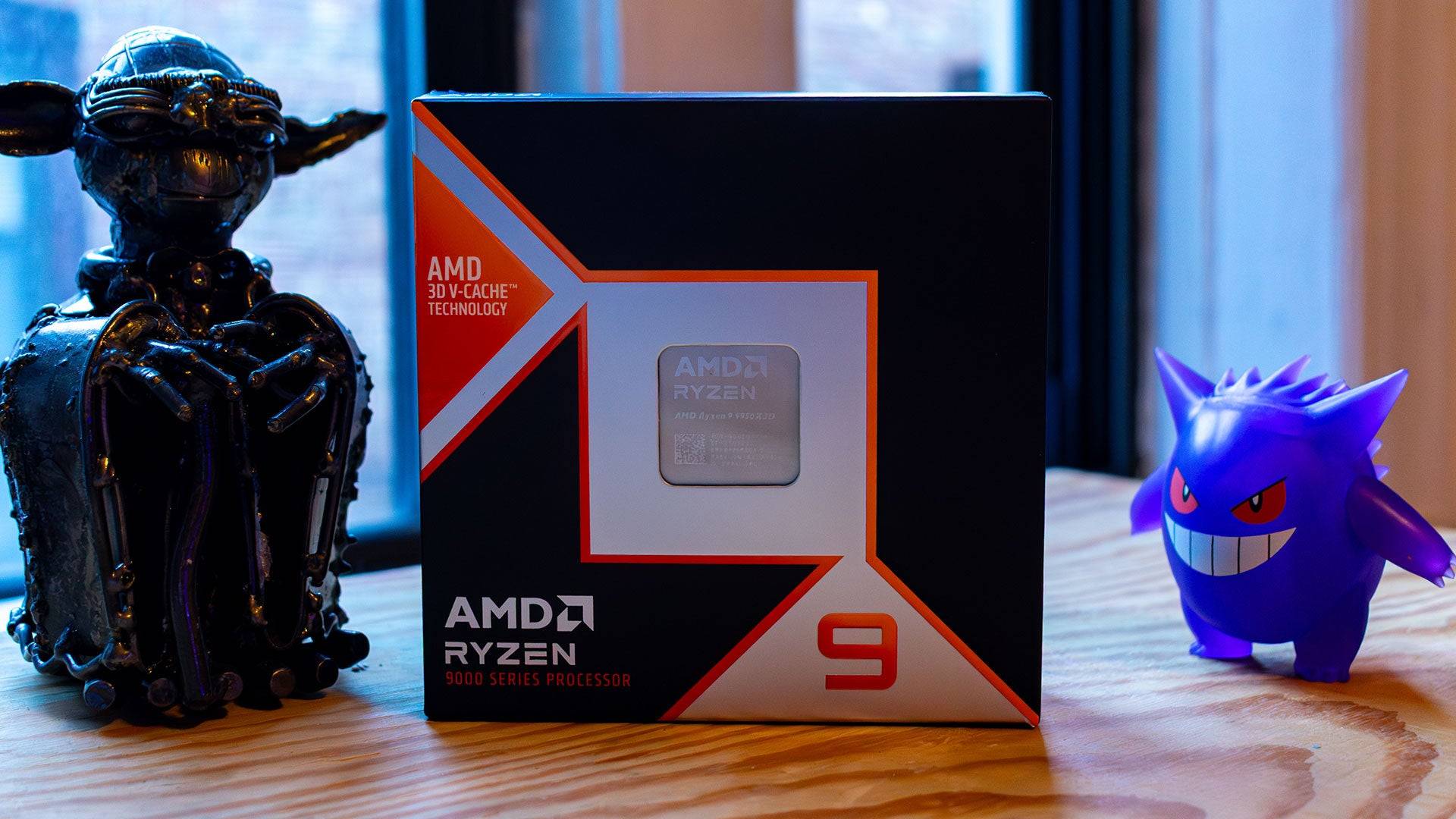
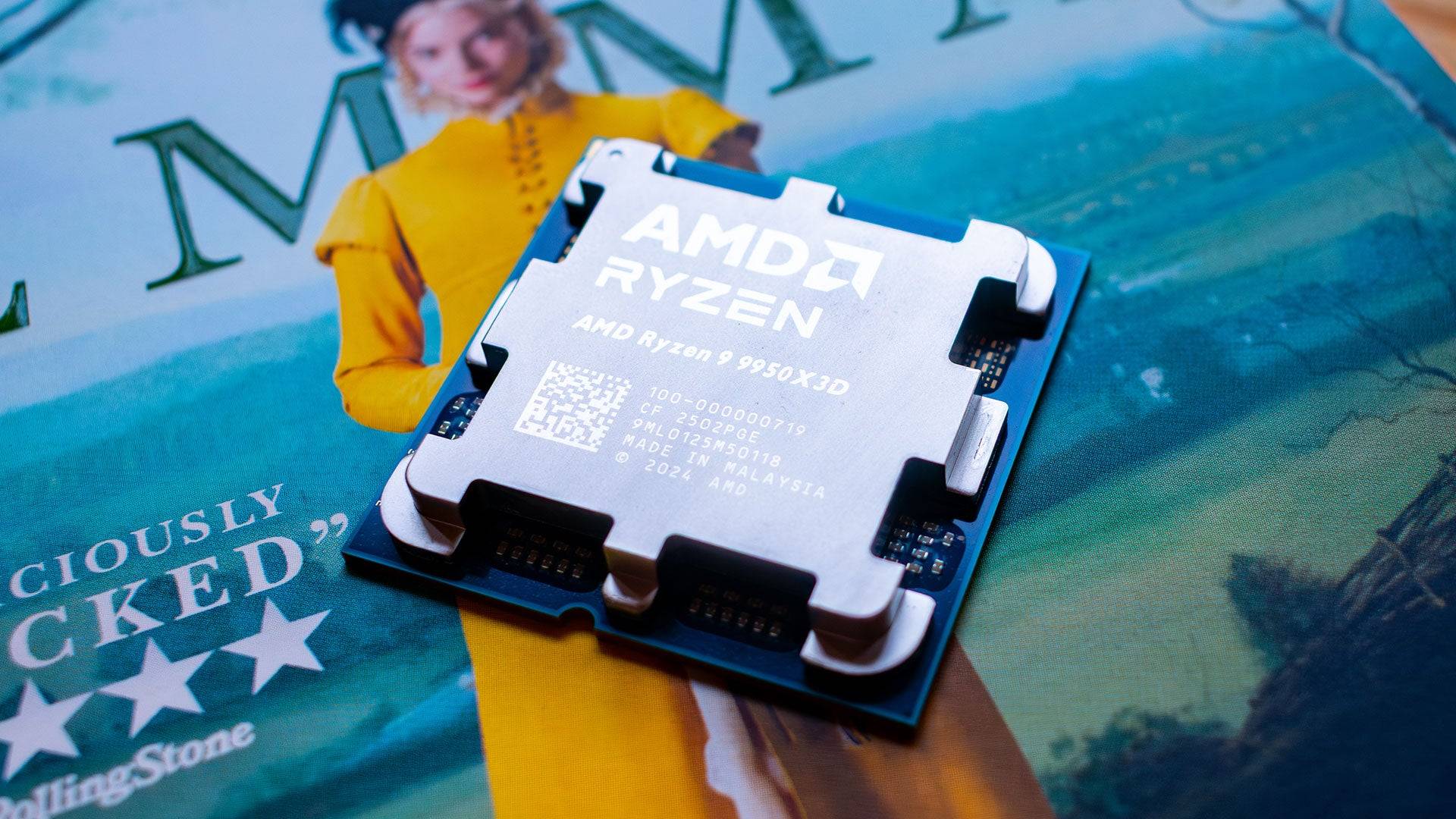
Specs and Features
The AMD Ryzen 9 9950X3D utilizes the same Zen 5 cores as the standard 9950X, enhanced by 2nd-generation 3D V-Cache, mirroring the Ryzen 7 9800X3D. This combination delivers exceptional multi-core performance alongside significantly improved gaming capabilities thanks to the expanded cache.
Unlike its predecessor, the Ryzen 9 7950X3D, the 3D V-Cache is positioned directly beneath the CPU cores, not above. This seemingly minor change dramatically improves thermal performance. The Core Complex Die (CCD), the primary heat source, is now closer to the Integrated Heat Spreader (IHS), facilitating more efficient heat dissipation. AMD's performance algorithms leverage this improved thermal headroom, enabling faster, more sustained clock speeds.
The cache's location offers benefits beyond thermal management. Reduced data travel distance translates to lower latency. The increased space allows for a substantial 144MB of combined L2 and L3 cache—identical to the last-generation Ryzen 9 7950X3D, but significantly more than any non-X3D processor.
Both the AMD Ryzen 9 9950X and 9950X3D share a 170W TDP, although the 9950X boasts a higher potential Precision Boost 2 (PPT). Testing revealed peak power consumption of approximately 200W for both. However, the 9950X3D exhibited lower peak temperatures (79°C during testing), though tested on a different cooler than the 9950X.
Compatibility with any AM5 motherboard is ensured, as the 9950X3D doesn't require a new chipset. AMD's commitment to AM5 support until at least 2027 eliminates platform obsolescence concerns.
AMD Ryzen 9 9950X3D – Benchmarks
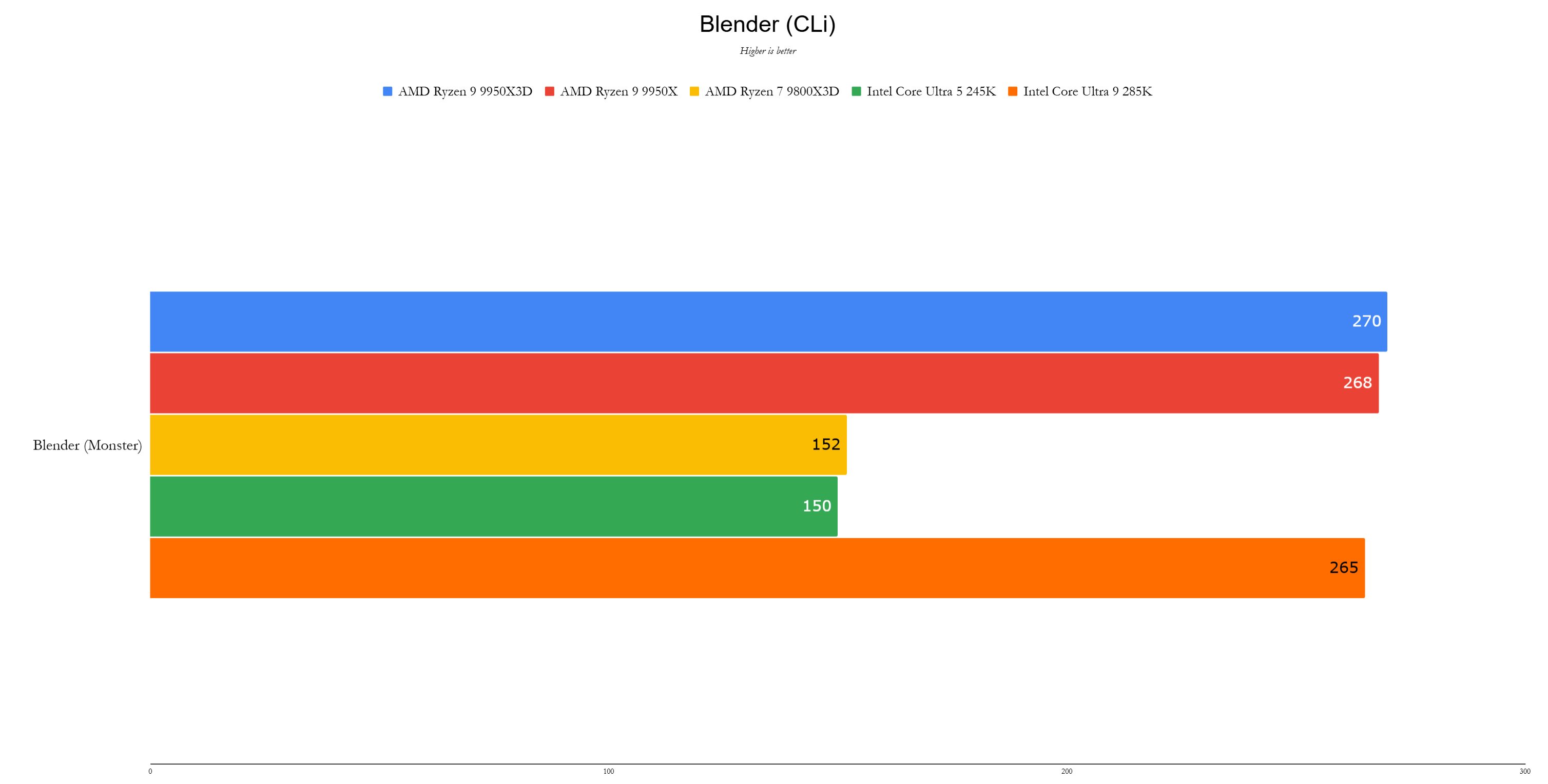

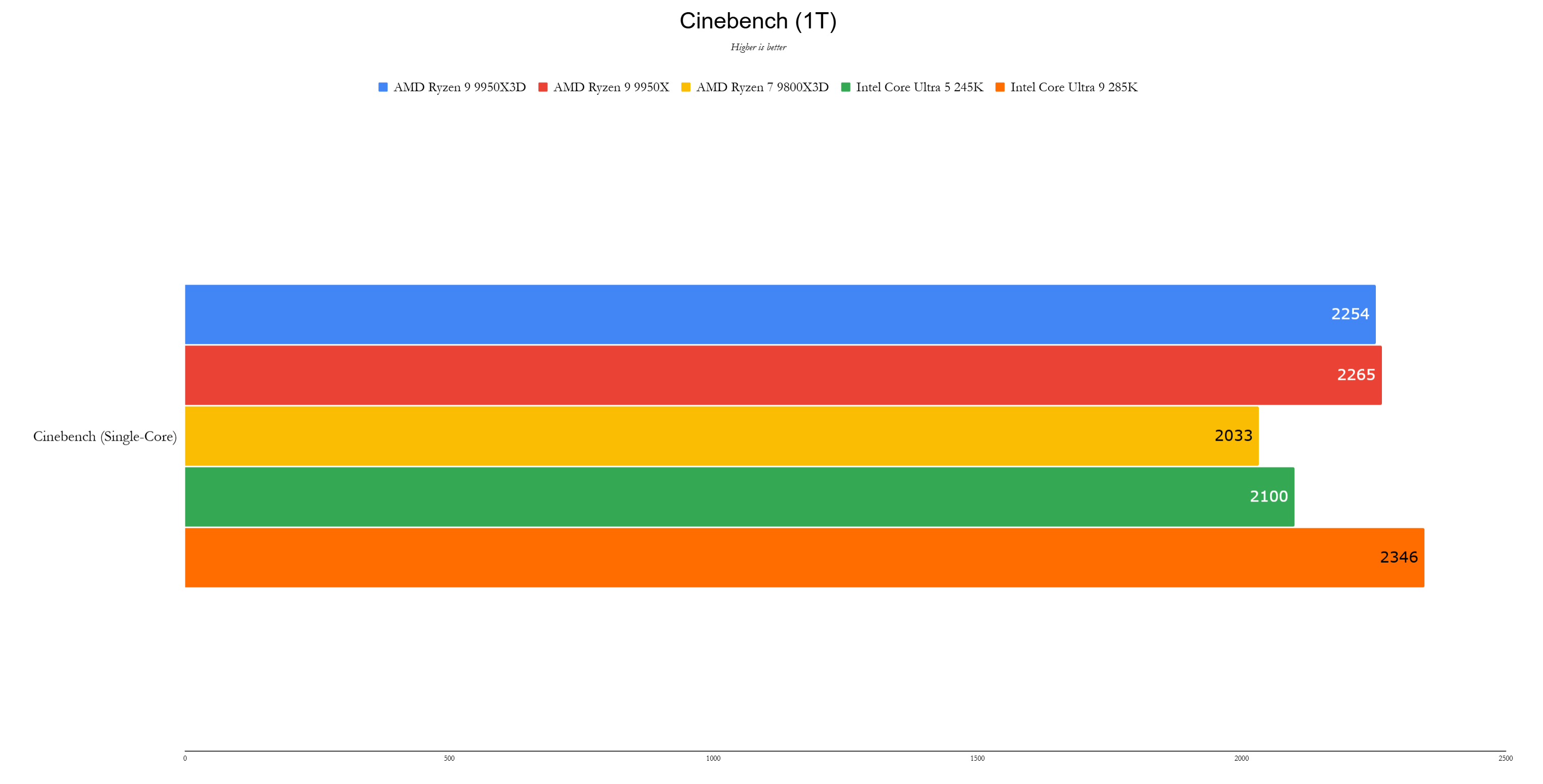
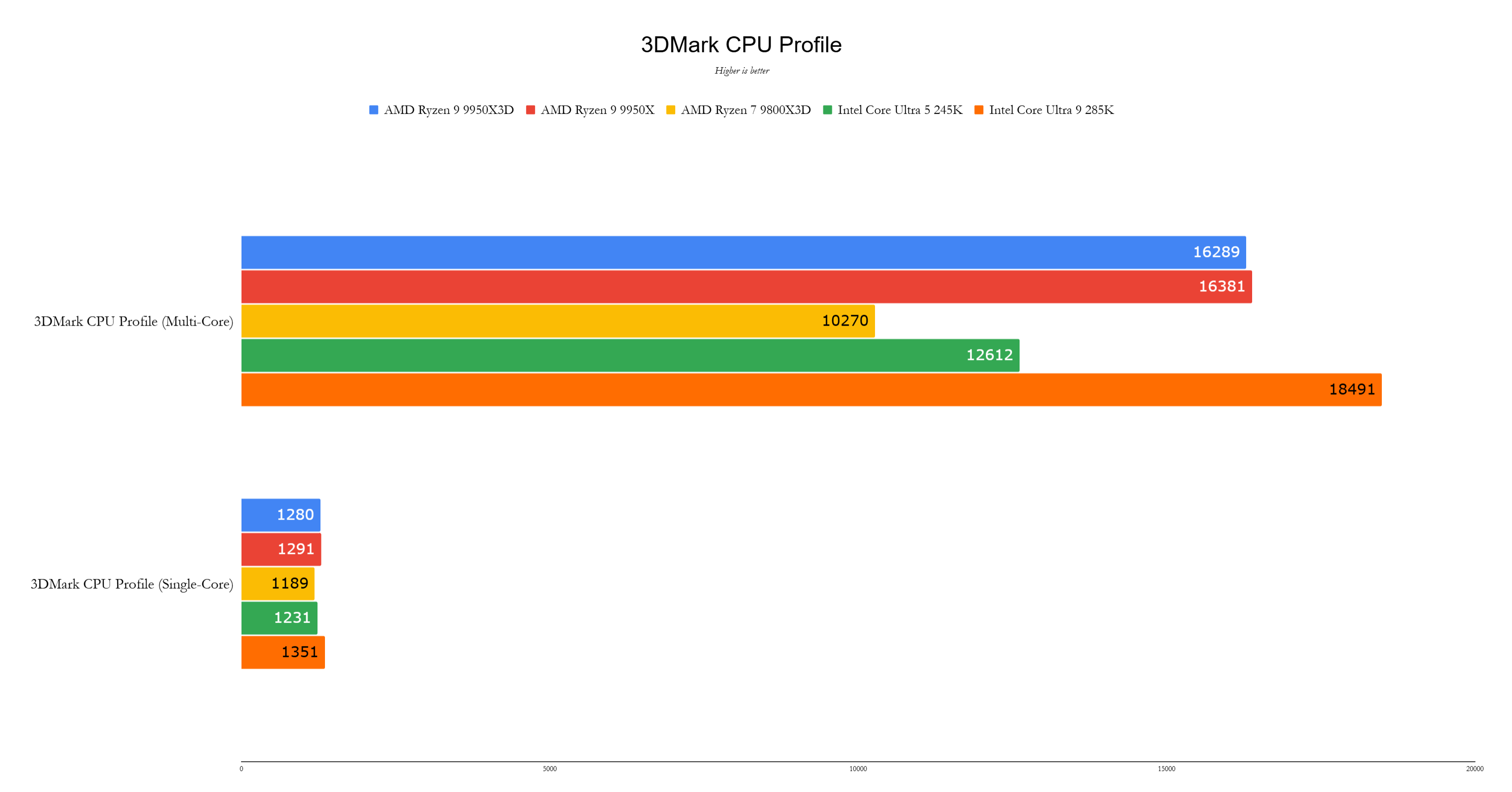
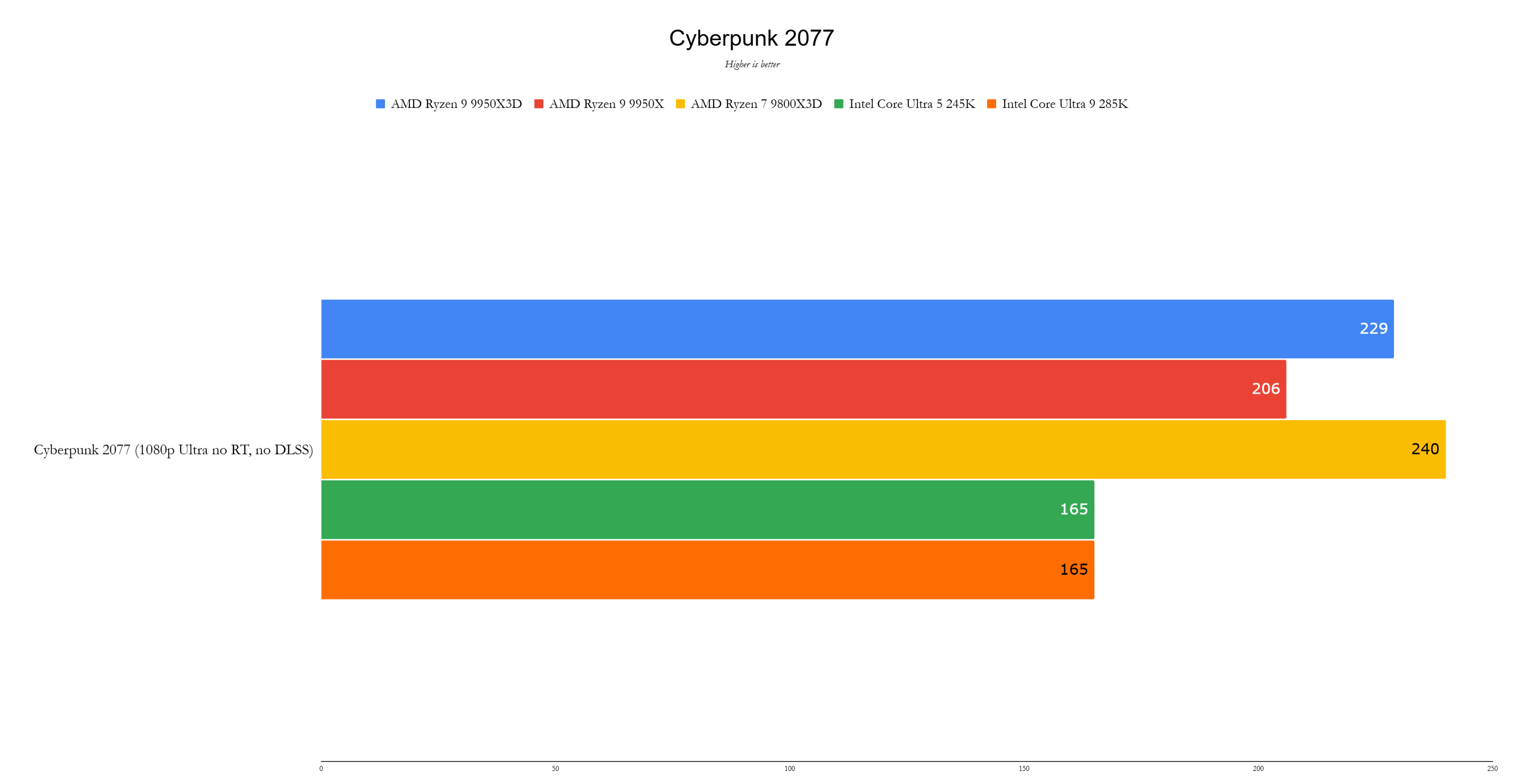
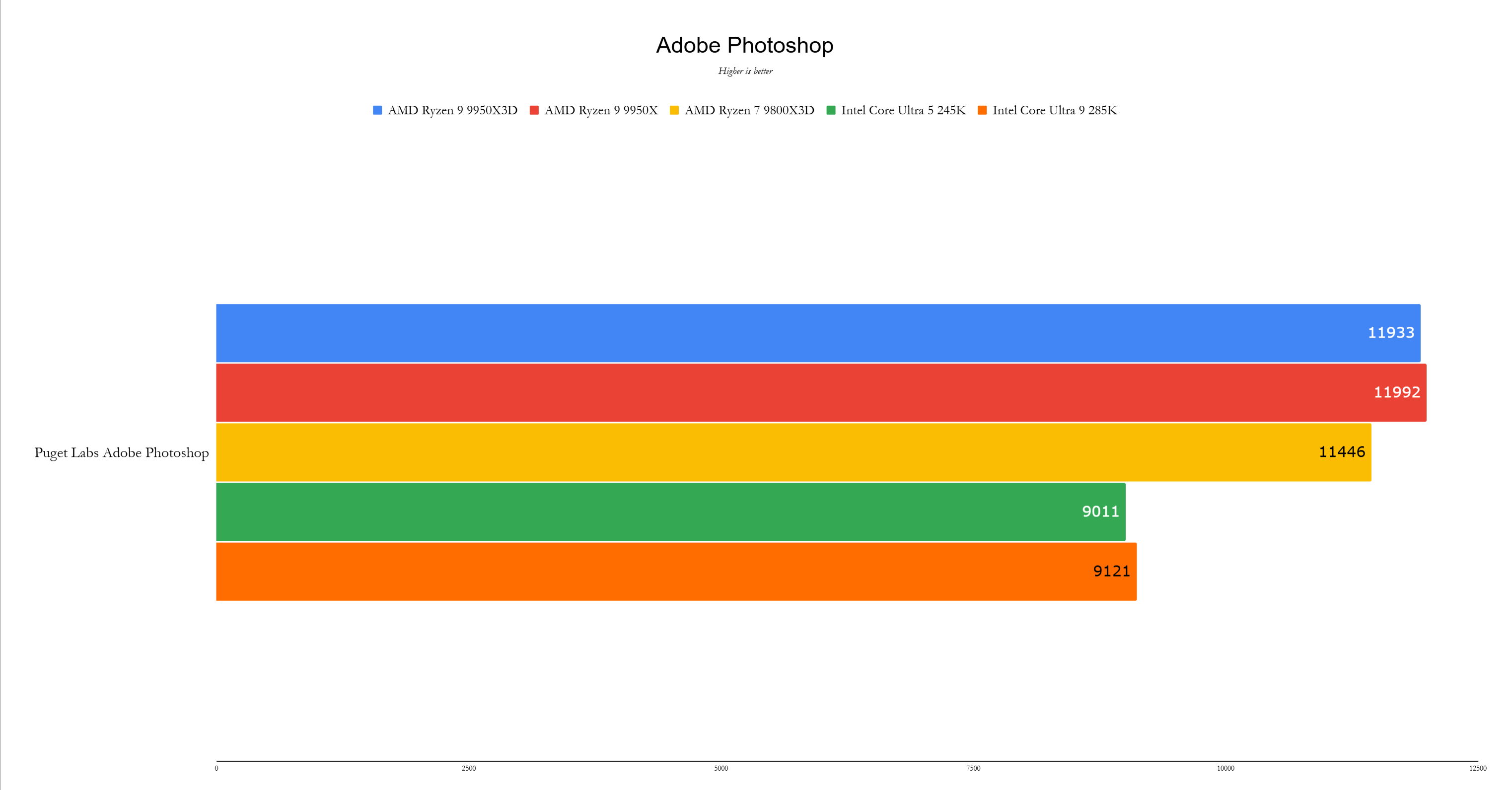
Performance
All CPUs were tested on identical hardware, except for the Ryzen 9 9950X (Asus ROG Crosshair X670E Hero motherboard, Corsair H170i 360mm AIO cooler). While this hardware difference impacts results, the effect is likely minimal, especially given stock settings.
AMD Test Bench: GPU: Nvidia GeForce RTX 4090; Motherboard: Asus ROG Crosshair X670E Hero; RAM: 32GB G.Skill Trident Z5 Neo @ 6,000MHz; SSD: 1TB PNY CS3140 Gen4x4 NVMe SSD; CPU Cooler: Asus ROG Ryujin III 360 ARGB Extreme (Note: A mounting screw issue with the 9950X cooler necessitated this variation. Retesting is planned.)
The Ryzen 9 9950X3D's 16 cores, 32 threads, and massive 144MB cache deliver exceptional performance. It excels even in creative workloads where the 9800X3D lags, matching the most powerful CPUs. Surprisingly, the 9950X3D holds its own against the 9800X3D in single-core tasks. Cinebench 1T scores show a 10% improvement (2,254 vs 2,033 points). The 3DMark CPU Profile test places it near the Intel Core Ultra 9 285K (1,280 vs 1,351 points).
Multi-threaded performance is where the 9950X3D truly shines, achieving 40,747 points in Cinebench's multi-core test. While it falls slightly short of the 9950X (41,123 points) and Intel Core Ultra 9 285K (42,245 points) in some multi-threaded applications, the gaming performance gains make the trade-off worthwhile.
Gaming benchmarks show impressive results. In *Total War: Warhammer 3* (1080p, Ultra settings), the 9950X3D delivers 274 fps (RTX 4090), surpassing the 9800X3D (254 fps) and Core Ultra 9 285K (255 fps). *Cyberpunk 2077* (1080p, Ultra, ray tracing off) yields 229 fps, slightly lower than the 9800X3D's 240 fps, but still significantly faster than the Intel processor's 165 fps.
Overkill?
While the AMD Ryzen 9 9950X3D may be the current gaming CPU king, it doesn't automatically outperform all alternatives. The significantly more affordable Ryzen 7 9800X3D ($479) suffices for most users. The 9950X3D's target audience includes users who need both high-end gaming and creative application performance (e.g., Photoshop, Premiere), where it offers a 15% improvement over the 9800X3D. For pure gaming builds, however, investing the extra $220 in a better graphics card might be a wiser choice.
-
1

Announcing the Bazaar Release: Date and Time Unveiled
Feb 02,2025
-
2

Andrew Hulshult 2024 Interview: DOOM IDKFA, Blood Swamps, DUSK, Iron Lung, AMID EVIL, Music, Guitars, Cold Brew Coffee, and More
Jan 07,2025
-
3

DC Heroes Unite: New Series from Silent Hill: Ascension Creators
Dec 18,2024
-
4

Professor Doctor Jetpack is a Pixel Art Precision Platformer Now Out on Android
Dec 30,2024
-
5
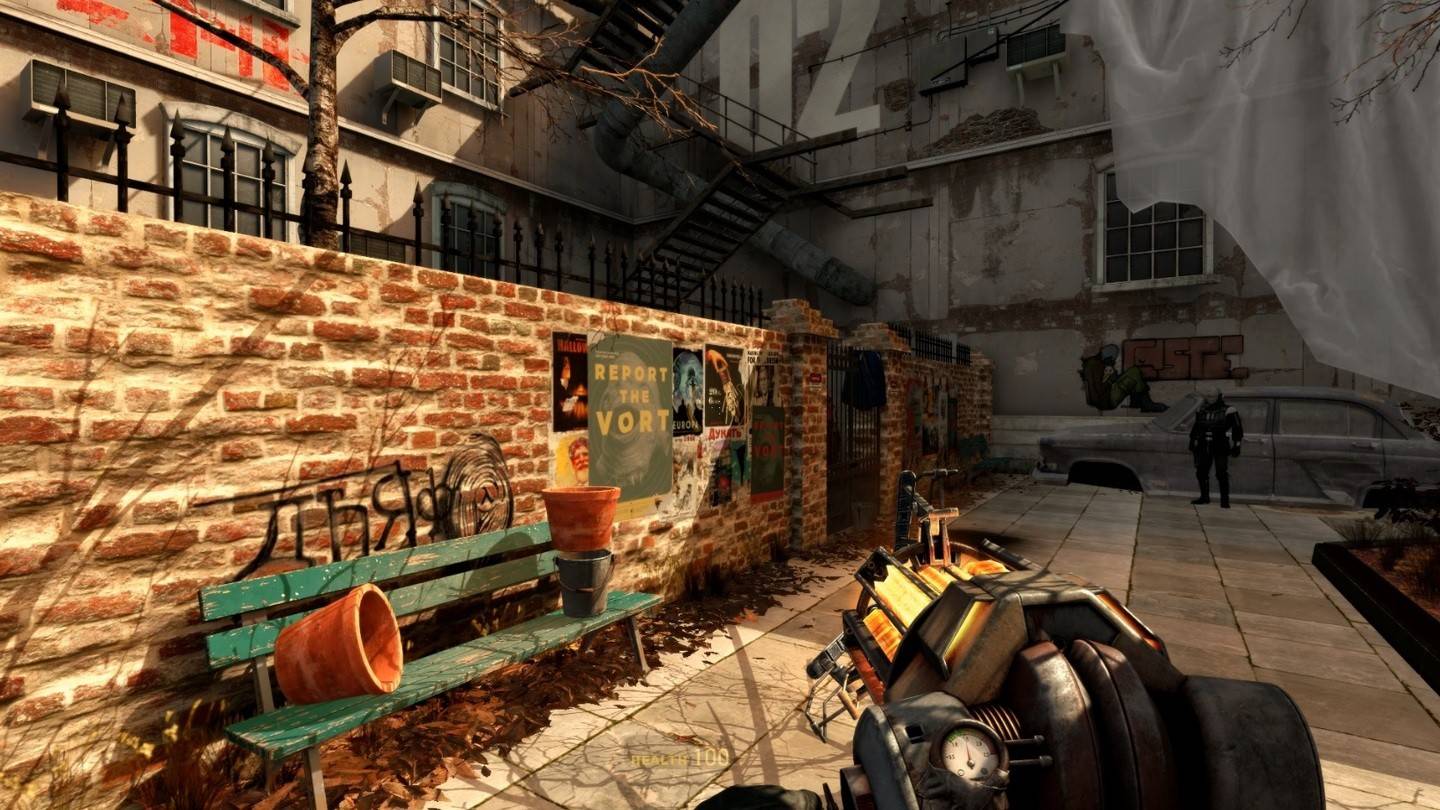
A demo of the fan-made sequel Half-Life 2 Episode 3 Interlude has been released
Jan 05,2025
-
6

Teamfight Tactics 14.14 Patch Notes: Inkborn Fables Finale
Jan 11,2025
-
7

All Camo Challenges in Call of Duty: Black Ops 6 Zombies
Jan 05,2025
-
8

Android Welcomes Virtual Pet Haven: Pet Society Island
Jan 09,2025
-
9

Switch 2: Summer 2024 Launch Expected
Dec 11,2024
-
10

Sword Master Story Is Celebrating Its 4th Anniversary with Tons of Freebies!
Jan 09,2025
-
Download

Ben 10 A day with Gwen
Casual / 47.41M
Update: Dec 24,2024
-
Download

A Simple Life with My Unobtrusive Sister
Casual / 392.30M
Update: Dec 10,2024
-
Download

The Lewd Knight
Casual / 1210.00M
Update: Jan 02,2025
-
4
Kame Paradise
-
5
Chumba Lite - Fun Casino Slots
-
6
Little Green Hill
-
7
I Want to Pursue the Mean Side Character!
-
8
Evil Lands: Online Action RPG
-
9
Lost Fairyland: Undawn
-
10
Hero Clash














